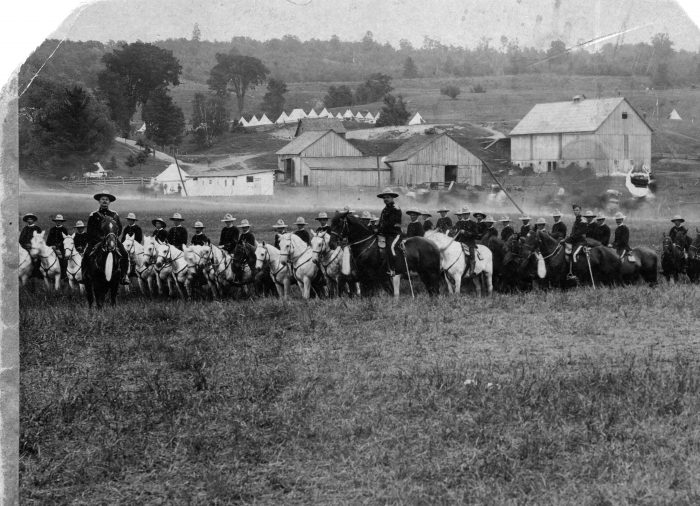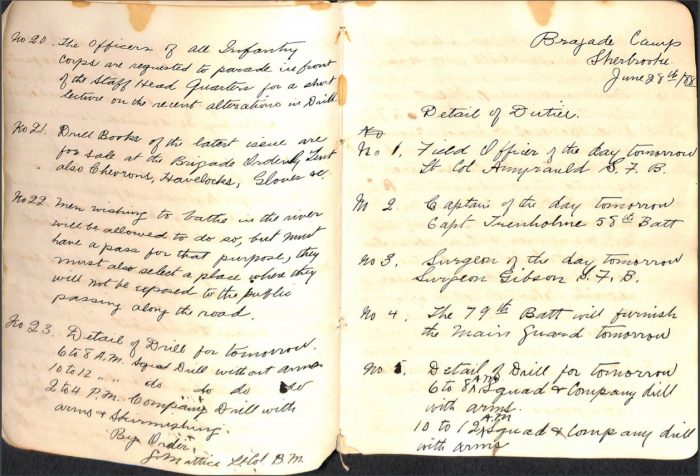

Partager
“Not a single case of drunkenness or insubordination of any kind”: keeping it civil while in camp
27 mai , 2020
Rise at 5am, breakfast, drills, dinner, drills, tea, drills, lights out 10:15pm. Such was the routine of life while in militia camp in the 1880s and 1890s. A cursory glance might suggest days of drudgery but a dip below the surface tells a different story. The rural militia camps were not held every year and, when held, moved around the militia district, usually taking place in June following the planting of crops.
Lieutenant-Colonel Gregor Mattice, who had served in the Fenian Raids, was serving as the Brigade Major when camp was held in Sherbrooke in 1888. His brigade orders and the military reports provided to Parliament by Lieutenant-Colonel C.F. Houghton give us a picture of what went on during the ten days of camp. Finding an appropriate location for the more than 1,000 men and accompanying horses for the cavalry troops was no small feat and the Sherbrooke location, “beautifully situated” on the east side of the St. Francis River, was decidedly inadequate. The flattest part of the location had to be used for the tents, leaving only uneven and rough ground for drilling, which made battalion movements impossible.
From reports and the logbook entries, it was important to the organizers that the surrounding community came away with good impressions of militia camp and the soldiers. Efforts were made to ensure that the camp grounds were left clean, that bathing men were kept discreetly away from passersby, and that they were generally well-behaved while in camp. In turn, locals benefited from the camp with contracts for things like supplying the bread the men received as part of their rations. In the case of the 1888 Sherbrooke camp, the YMCA supported the men by providing free ice water, writing supplies, and reading materials.
Even though the men seem to have behaved themselves appropriately for the duration of the 1888 camp, it was not entirely without trouble. Private Donald McKay, reportedly only 16 years old at the time, of the Lake Megantic company of the 58th Compton Battalion drowned in the St. Francis River, even after swimming had been banned (except in small groups with special permission and supervision) following the recent drowning of private from the 53rd Battalion only a few days before camp began.
Despite the sad incident, the camp carried on with their scheduled activities, which included daily parades and band playing hours, and sports games as part of Dominion Day celebrations.
Last spring, the ETRC received the militia camp logbook for three camps in the Townships that were held between 1888 and 1895. The logbook is available in its entirety online for those who would like to take some time to step back into a part of our military past: https://www.townshipsarchives.ca/military-camp-log-book (click on the image of the cover to read the logbook).

